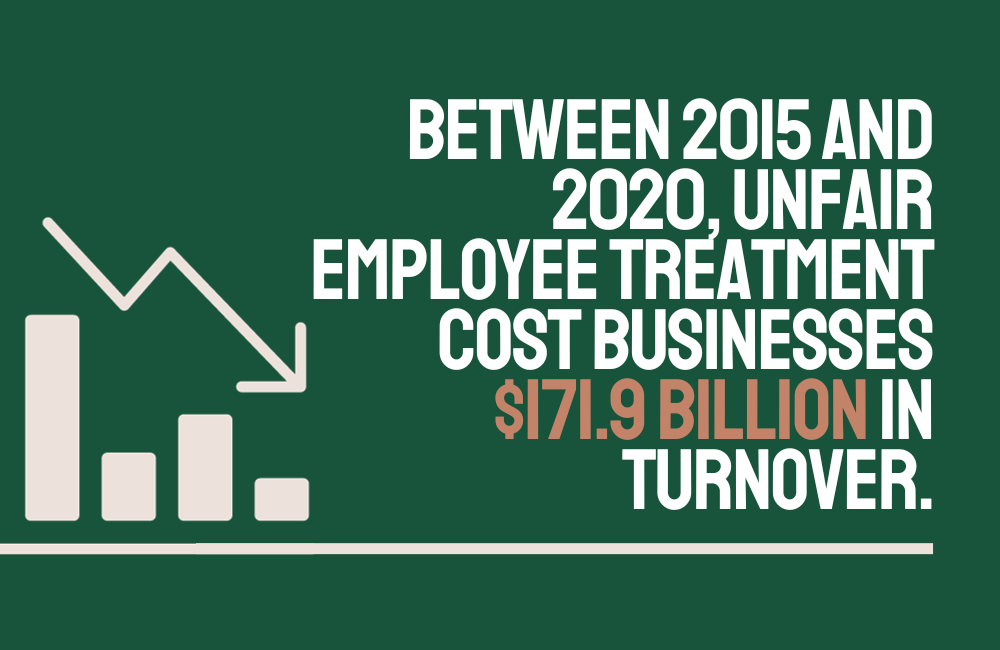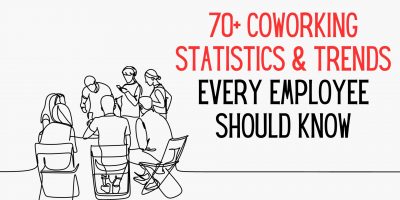
50+ Identity Theft Statistics Employers Should Know
Stay informed with key identity theft statistics that every employer should be aware of, safeguarding sensitive information and protecting your workforce.

December marks Universal Human Rights Month, when we celebrate our progress in building a society based on equality, justice, and freedom. Beyond the holiday festivities and New Year’s resolutions, this month presents an opportunity to educate and raise awareness of people’s fundamental rights.
During a time of self-reflection and aiming to improve ourselves, what better goal to set this December than reflecting on how we treat others and taking a stand for equality?
Aiming to bring further attention to this matter, this Shortlister article explores the importance of Universal Human Rights Month in the workplace and as part of companies’ Corporate Social Responsibility (CSR) efforts.
In 1948, nations worldwide were rebuilding what was lost in the Second World War. Preceding centuries of mistreatment, lack of freedom, and inequality, the aftermath of the war was a turning point for change.
That year, on December 10, the Commission of Human Rights, chaired by Eleanor Roosevelt, signed the Universal Declaration of Human Rights (UDHR), a document that protects the rights and freedom of all people equally.
Proclaimed by the United Nations (UN), the declaration became a global milestone in human rights.
Two years later, the UN expanded its role and invited all member states and other organizations to celebrate International Human Rights Day.
In 2001, under the presidency of George W. Bush, the U.S. declared the first Human Rights Week.
From day to week to month, we now celebrate human rights throughout December.
It’s a time when governments, organizations, and individuals come together under the same goal – to increase awareness on this matter through education, advocacy, and fundraising activities.
Before we discuss employers’ role as part of this collective commitment, it’s essential to take a step back and comprehend the document that started everything—the Universal Declaration of Human Rights.

“All human beings are born free and equal in dignity and rights. They are endowed with reason and conscience and should act towards one another in a spirit of brotherhood“.
– Article 1 of the Universal Declaration of Human Rights
The UDHR is the foundation of today’s Universal Human Rights Month. Consisting of 30 articles, this document serves as a shared benchmark for all people, regardless of “race, color, sex, language, religion, political or other opinion, national or social origin, property, birth, or other status” (Article 2).
What’s more important, for the first time, it introduced fundamental human rights and freedoms and their universal protection.
These expand even in the workplace.
In fact, Article 23 states that “everyone has the right to work, to free choice of employment, to just and favorable conditions of work and to protection against unemployment.”
Unfortunately, while employers have come a long way, especially in enforcing human rights, employment discrimination and bias are still prevalent. Research shows that between 2015 and 2020, unfair employee treatment cost businesses $171.9 billion in turnover.
In anticipation of Universal Human Rights Month, let’s explore its significance in tackling these workplace challenges.

The preamble of the UDHR urges that “every individual and organ of society” promotes and respects human rights.
This obligation also falls on employers.
Thus, many businesses take an ethical stance in protecting human rights, often as part of their corporate social responsibility. Everything from their operations and labor practices to their social and environmental impact can fall under human rights.
Celebrating Universal Human Rights Month further strengthens their ethical conduct, influencing positive change within the workplace and beyond.
Equal rights thrive under a culture built on respect and vice versa.
In the workplace, that means treating employees fairly, creating equal employment opportunities, and promoting these values through policies and education.
Celebrating Universal Human Rights Month is a step in the right direction, directly contributing to creating a positive culture, which, in return, leads to corporate growth.
Numerous studies have shown that a strong company culture benefits employees and employers, especially when it aligns with their values and beliefs.
One, for example, indicates that 90% of executives agree company culture is essential, 92% believe it can improve the value of their business, and more than 50% found that it influences productivity, creativity, and firm value.
Beyond profit and corporate growth, a culture built on respect should make employees feel heard by celebrating their individuality and protecting their dignity and rights.
Equality means that all employees get fair treatment, regardless of age, gender, sexual orientation, or other characteristics. Conversely, inclusion represents an equal opportunity to participate, contribute, and grow within the company.
Following these principles leads to a diversified workforce that strengthens teams and businesses.
Corporate diversity statistics reveal that companies with more diverse executive boards have 53% higher returns on equity and better earnings. Moreover, ethnically diverse organizations are likely to reach 35% better performance, whereas gender-diverse organizations have 15%.
This year’s Universal Human Rights Month is an excellent opportunity for companies to promote Diversity, Equity, and Inclusion (DE&I) initiatives and set an example for others, including their employees.
Gender, age, sexual, racial discrimination, and even ableism – 75 years after the UDHR, are still very present in the workplace.
For example, a Gallup survey reveals that workplace discrimination is more common among Black and Hispanic employees than Whites and Asians. This affects workers’ perception of the company’s culture, colleague’s intentions, employment opportunities, and safety and belonging. It also impacts engagement and employees’ ability to do their best work.
Another major issue remains, which is gender discrimination.
The World Bank reports that 2.4 billion women of working age remain deprived of equal economic opportunities.
Moreover, the workplace is not any kinder to the LGBTQ+ population. In fact, one report indicates almost half of them have experienced unfair treatment at some point in their career.
It’s clear that workplace discrimination on many grounds remains an unfortunate reality that employers should confront.
Although there are legal protections against employee discrimination, for employers, it’s also an ethical responsibility to provide a safe and bias-free environment for all employees equally.
One way to do so is by reaffirming a zero-tolerance policy against injustice and educating the workforce.

To exercise our rights, we need to understand them.
Thus, investing in education and training creates awareness and understanding beyond the workplace. It provides workers, managers, and leadership with the resources to recognize and prevent human rights violations.
With this, they become advocates and contribute to creating an ethical workplace, safer communities, and a more just society.
The upcoming month provides an ideal opportunity to align Corporate Social Responsibility (CSR) efforts with human rights principles.
When companies do this, it shows dedication and commitment and enhances their reputation as an ethical employer. In return, they reap the benefits that come from their CSR activities.
For example, one research shows that this positively affects workers’ intrinsic motivation.
According to other business insights, the advantages transcend anything from better brand loyalty to increased employee retention.
However, any attempt to align CSR with the human rights movement should derive from what companies give rather than what they can get from it.
In a guest editorial for the Corporate Citizenship Briefing, the founder of the Business and Human Rights Resource Centre, Christopher Avery, indicates that sometimes the relationship between these two is not entirely understood.
“While there is a strong ‘business case’ for respecting human rights, companies are obliged to respect human rights at all times, not just when it suits them.”
Avery further argues that organizations are making a critical mistake and exposing themselves to risks if they do not embrace a human rights framework.
It means setting up a policy that commits to respect and support international human rights standards by identifying, preventing, or resolving any potential risks. This policy can be a standalone or as part of CSR documentation.
Ultimately, acknowledging and celebrating human rights should be integral to every workplace, fostering a culture of integrity, respect, and fairness.
This year’s International Human Rights Day marks the 75th anniversary of the Universal Declaration of Human Rights.
In the workplace, human rights are employee rights.
So, this December, we celebrate hiring and wage parity, maternity rights, the right to fair payment, safe work conditions, and much more.
Companies becoming advocates pushes employees to see past their differences and find common ground on many workplace challenges.
Whether through education, DE&I initiatives, or strengthening CSR efforts, employers play a major role in increasing awareness during and after Universal Human Rights Month and creating a more accepting and inclusive society.
Content Writer at Shortlister
Browse our curated list of vendors to find the best solution for your needs.
Subscribe to our newsletter for the latest trends, expert tips, and workplace insights!

Stay informed with key identity theft statistics that every employer should be aware of, safeguarding sensitive information and protecting your workforce.

Why are your employees leaving? Asking the right exit interview questions reveals the pattern behind high turnover and transforms offboarding into a roadmap for retention.

Explore the shift in work dynamics brought by the hybrid work model, its impact on office spaces, employee productivity, and the purpose of physical workspaces in the modern professional landscape.

Delve into the latest coworking statistics highlighting its benefits in creating a positive work environment and increasing employee productivity.
Used by most of the top employee benefits consultants in the US, Shortlister is where you can find, research and select HR and benefits vendors for your clients.
Shortlister helps you reach your ideal prospects. Claim your free account to control your message and receive employer, consultant and health plan leads.